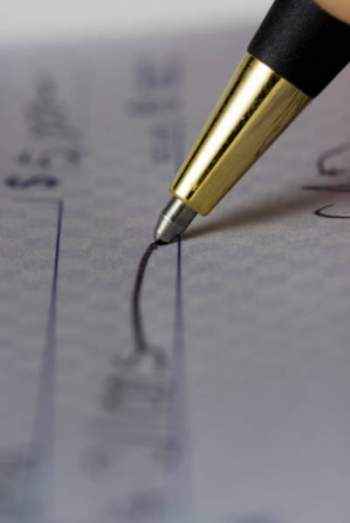
Watch Out for Unauthorized Signatures!

While it is certainly a crime to use a forgery signature on a negotiable instrument in order to defraud the bank or other institution, the Uniform Commercial Code (UCC) actually is designed to ratify such unauthorized signatures. This is because the UCC is designed to protect the bank in the case of forgery, as opposed to prosecuting the forger.
If the unauthorized signature is ratified, then it is so that the bank, which takes the negotiable instrument with the forgery signature in good faith, completely fulfilling the requirements for being termed a holder in due course, is protected from any repercussions surrounding the forged signature. In other words, the ratification of a forgery is only for the protection of the party "who in good faith pays the instrument or takes it for value."
The UCC specifically has, as one of the provisions under Article 3, the statement that regardless of ratification of the forgery signature, the forger is still subject to whatever civil or criminal liability he or she might have brought upon him or herself through violating other laws. In other words, just because the bank is protected for having taken a check with an unauthorized signature does not mean that the culpable party is safe from charges of forgery.
The UCC protection of the bank might, however, leave the victim of such forgery liable for whatever payment was made with the negotiable instrument bearing the forgery signature. This is because, under the UCC, if the bank did take the negotiable instrument in good faith without being aware of the forgery, the bank will likely have status as a holder in due course, and therefore, will be exempt of any defense that the original issuer of the check might make against paying the negotiable instrument.
Thus, that party will still have to pay the bank whatever funds were deposited. The victim will, however, likely be able to seek reparations or restitution for those lost funds from the thief or forger in either criminal or civil court, separate from any regulations from the UCC about forgery or forgery signatures.
In all cases in which the forgery is relatively obvious, however, the bank would have a responsibility to not accept the negotiable instrument with the forgery upon it. If the court could reasonably construe that the receiving party should have had doubt as to the authenticity of the forgery signature, then the bank could not obtain holder in due course status, and as such, the victim would not be held liable for any funds paid from the bank for the negotiable instrument.
NEXT: What is Primary Liability?





















